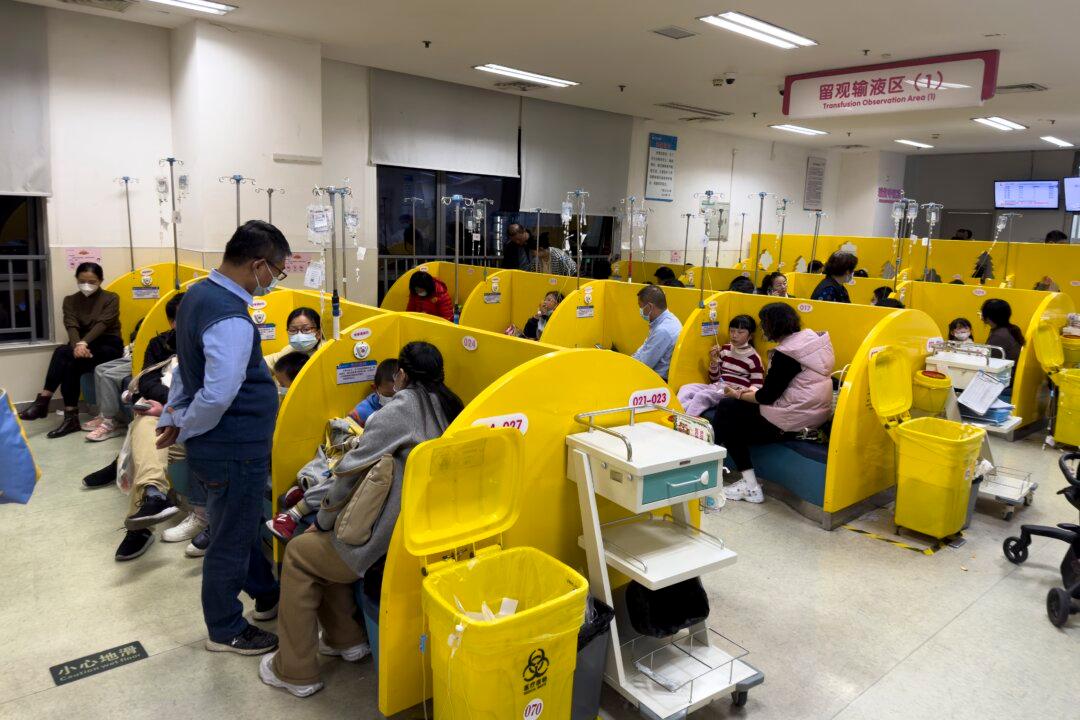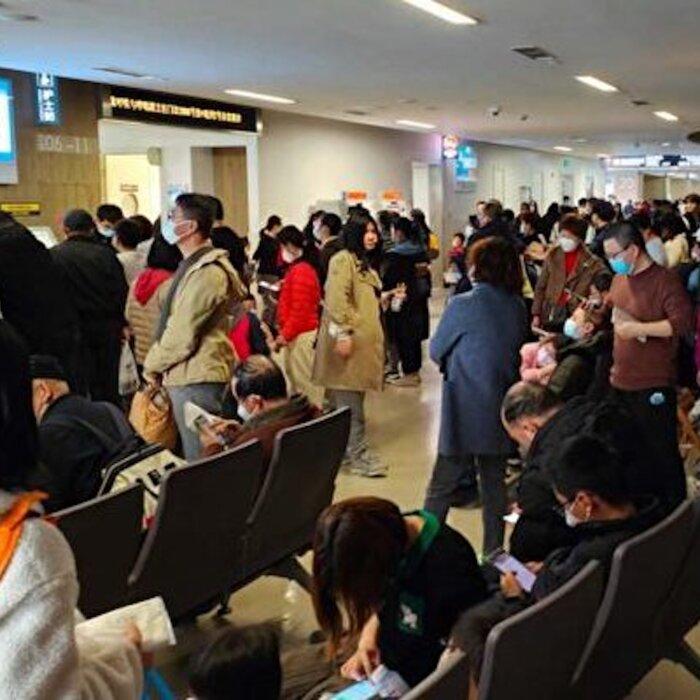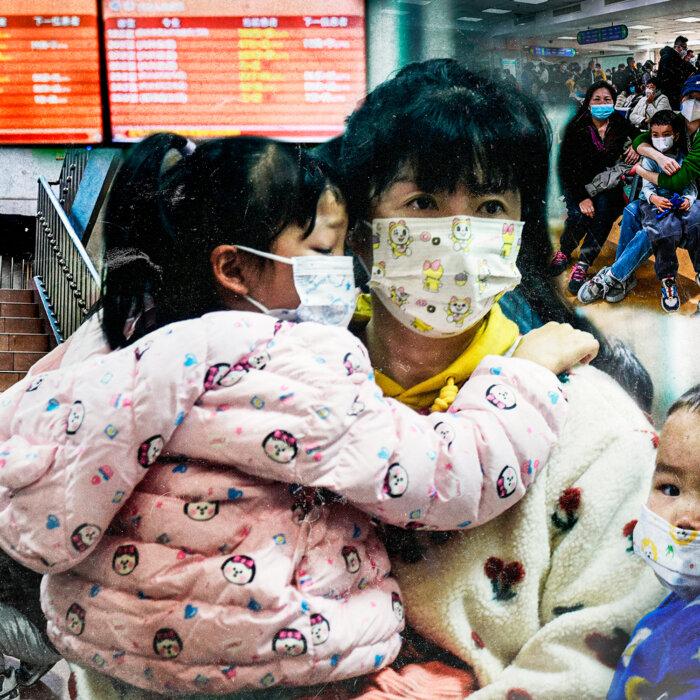Five major Chinese pharmaceutical companies recently announced that Beijing approved their newly developed COVID-19 vaccines for “emergency use” amid the fast-worsening pneumonia outbreak in China. Meanwhile, authorities have reinstated COVID-19 control measures, including PCR testing and health codes, in various locations nationwide.
Nevertheless, the ruling Chinese Communist Party’s (CCP) health authorities continue to provide conflicting information regarding the surge in pneumonia infections, particularly among children, since mid-October, refraining from calling it a new COVID-19 outbreak. Experts believe that the CCP is once again attempting to conceal information, which is reminiscent of its actions at the onset of the COVID-19 pandemic in late 2019, to safeguard the regime’s political security.
In less than a week, five new coronavirus vaccines have been included for emergency use by governmental departments. The vaccines protect against the subvariants of Omicron XBB—a variant of SARS-CoV-2 (the virus that causes COVID-19)—supposedly causing the epidemic in China, according to various Chinese media reports.
Livzon Pharmaceutical Group and CanSino Biologics announced on Dec. 3 that the new coronavirus vaccines that they developed were approved for emergency use.
Watson Biotech and CSPC Pharmaceutical Group issued statements on Dec. 1, confirming that the new coronavirus variant mRNA vaccines that they developed had been approved for emergency use by the research and development team of the State Council’s Joint Prevention and Control Mechanism Scientific Research Group.
Shenzhou Cell also announced on the same day that its recombinant new coronavirus Beta/Omicron (BA.1/BQ.1.1/XBB.1) variant S trimer protein vaccine has also been approved by health authorities.
“These newly included COVID-19 vaccines have a common feature: they target XBB mutant strains,” Guo Xinfeng, a senior pharmaceutical industry expert, told mainland Chinese media.
He expressed doubt about the effectiveness of the new vaccines, saying there’s still a risk of a rebound in the COVID-19 epidemic in China this winter.
PCR Testing, Health Codes
Patients, predominantly children, infected with the mysterious drug-resistant pneumonia that causes “white lungs,” a symptom commonly found in severe COVID-19 cases, continue to overwhelm hospitals across China.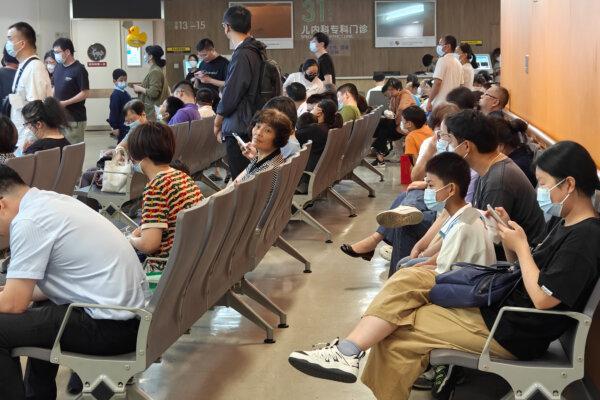
Meanwhile, reports from Chinese media and netizens indicate that in many neighborhoods–including those in Sichuan, Guangzhou, Zhejiang, Hubei, Hebei, Shaanxi, and Tianjin city—authorities have reactivated health codes, which were used to monitor and restrict people’s movements during the regime’s draconian COVID-19 lockdowns.
Furthermore, megacities such as Shanghai and Guangzhou have reintroduced PCR testing.
Professor Tian Li from Harbin Business School in northern China shared a video on Chinese social media, disclosing that he was required to take a PCR test upon his arrival at the “Understanding China in 2023” international conference in Guangzhou on Dec. 1.
He Xiaopeng, the founder and chairman of Xpeng Motors, shared his experience on Chinese news aggregator Jinri Toutiao, or “Today’s Headlines,” on Dec. 1. He said that when he returned from abroad to attend an international conference in China, he had to undergo a PCR test as soon as he got off the plane in Shanghai. Since the policy for mandatory testing had been lifted, Mr. He was puzzled and asked the airport staff why he was tested. He was then told that he was randomly selected, although he observed that all passengers from the same flight were required to take the PCR test.
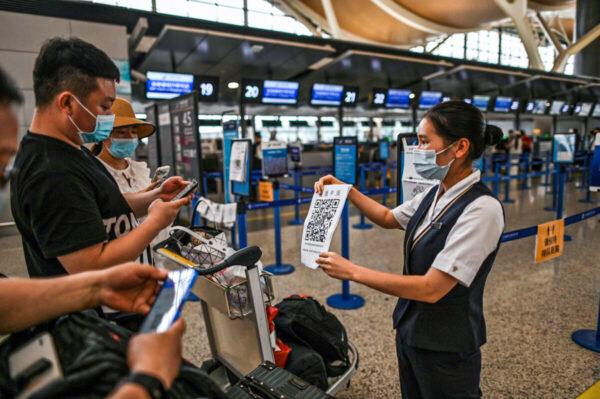
An employee at Shanghai Pudong International Airport surnamed Ma told Radio Free Asia on Dec. 4 that many foreign passengers must undergo rapid COVID-19 tests upon arrival.
The employee said: “At the airport, incoming passengers are said to be randomly checked [for COVID-19 using PCR tests]. But I saw that some people and the entire flight were tested for it. Also, a friend of mine flew to Australia yesterday and sprayed that kind of disinfectant [the one used during the COVID-19 pandemic] on the plane. It has been a long time since it was sprayed. Health codes in many places have already been relaunched online.”
Authorities at Yiwu city—home to Yiwu Market, one of the world’s biggest wholesale markets—issued a notice on Dec. 1, advising residents to stock up on food supplies that can last more than 10 days. The notice triggered panic on social media, with residents expressing concern about the prospect of another round of pandemic lockdowns. Although the notice was subsequently removed from the local government’s website, it remains accessible through related Chinese media reports and reposts on social media.
CCP Downplays Outbreak
As the mysterious pneumonia continues to spread in China, an increasing number of adults, including nurses and doctors, have reportedly been infected. Reports indicate that this pneumonia is resistant to drugs, making the antibiotics typically effective against mycoplasma pneumonia ineffective in its treatment.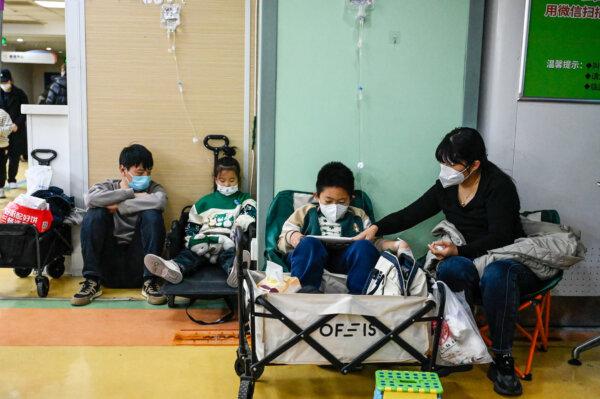
Epoch Times contributor Dr. Dong Yuhong, an infectious disease specialist and scientist, pointed out how the CCP’s authoritarian political system influences the management of epidemic information.
“Under the one-party rule of the CCP, the regime controls the flow of information to maintain so-called social stability and its image. Especially under its current leader, Xi Jinping, the response policy to the COVID-19 pandemic initially followed the ‘zero-COVID’ restrictive control policy for the first three years. Subsequently, authorities completely reopened the country and halted testing. Over time, the CCP’s actions have led to a prolonged cover-up and ongoing outbreaks,” Dr. Dong told the Chinese-language edition of The Epoch Times on Dec. 4.
“Disclosing the epidemic data at this point could harm the CCP’s international image, triggering demands from the global community and the Chinese population to hold the CCP accountable while causing panic within the leadership.”
She emphasized that a continued lack of transparency in information, whether covering up or downplaying the outbreak, may repeat the events seen during the COVID-19 pandemic. This recurrence could result in a new pandemic, Dr. Dong said, which may cause another recession in the slowly recovering global economy.
